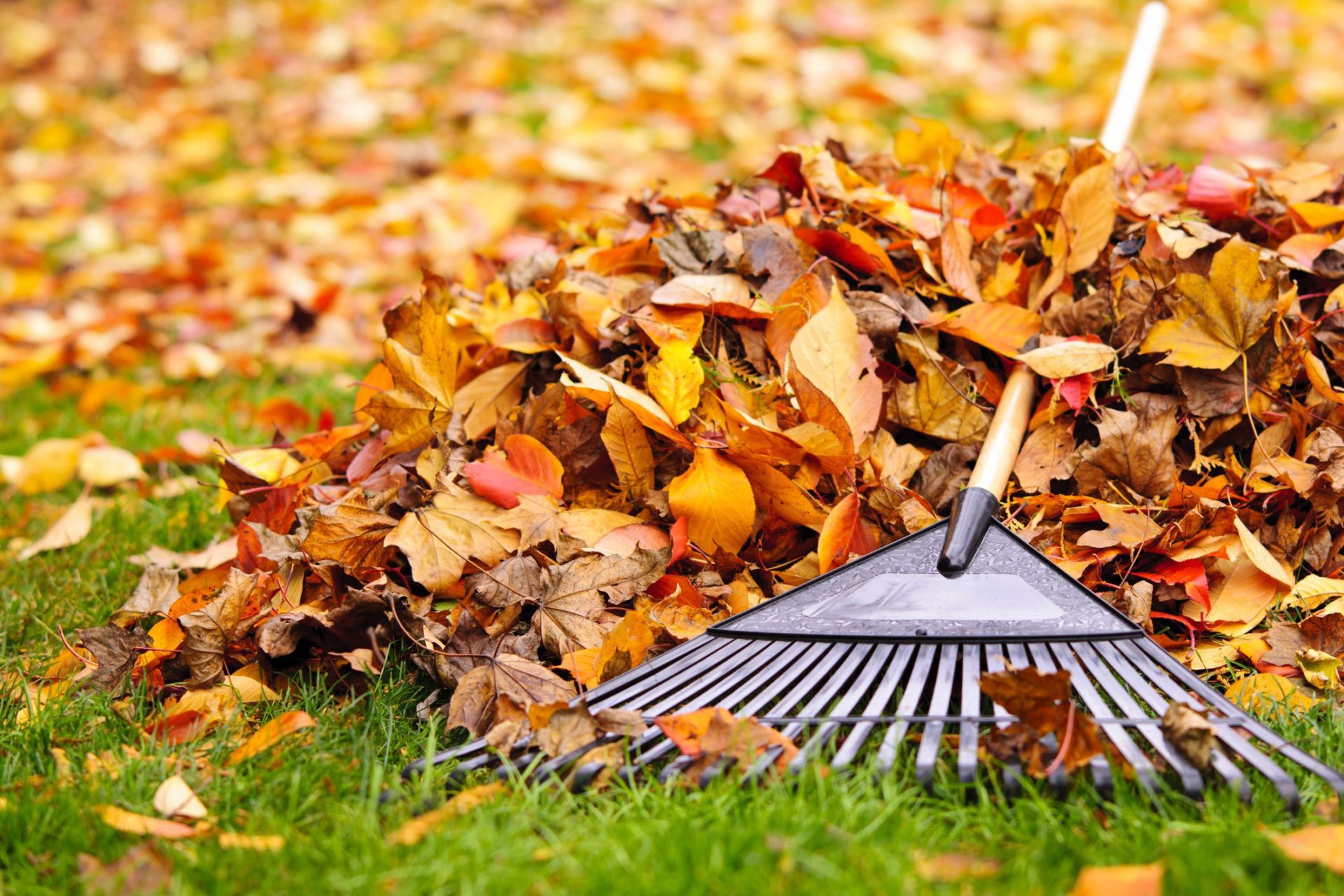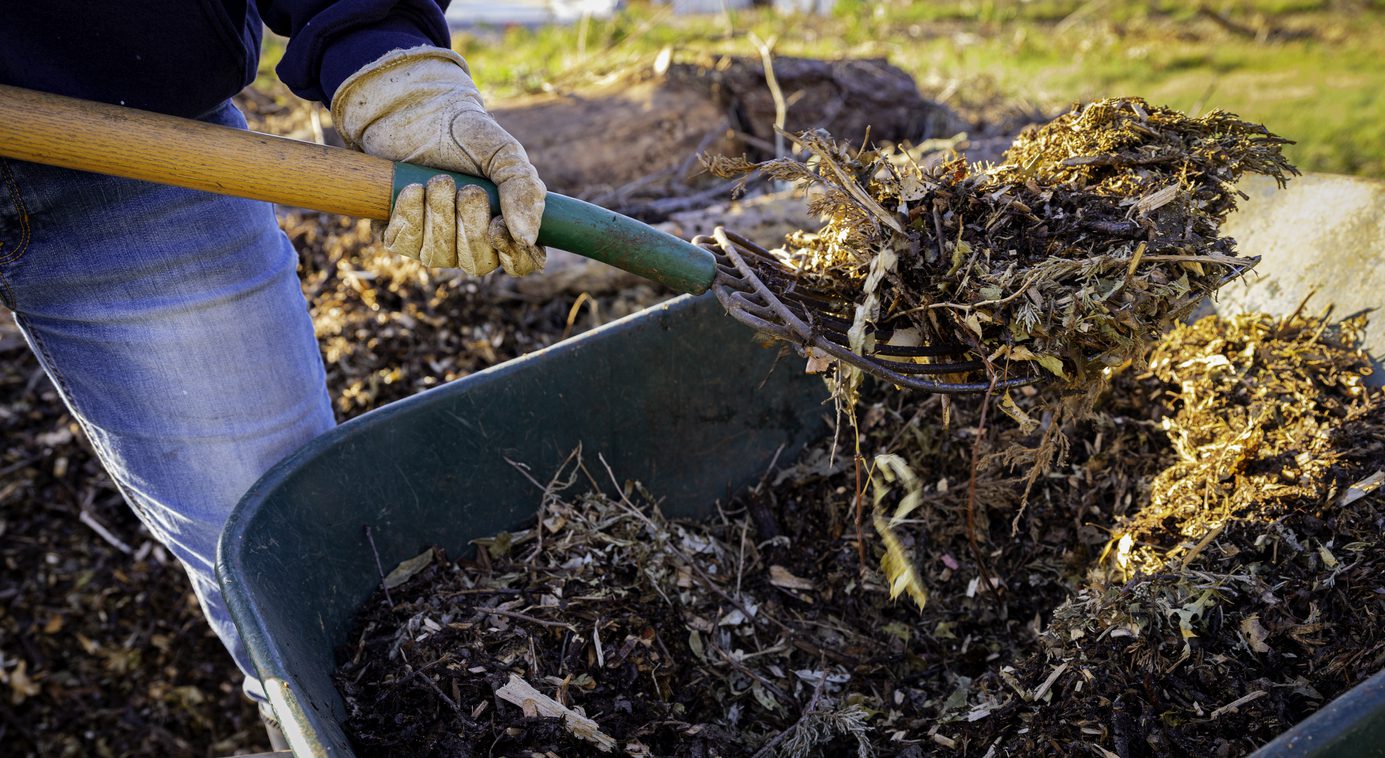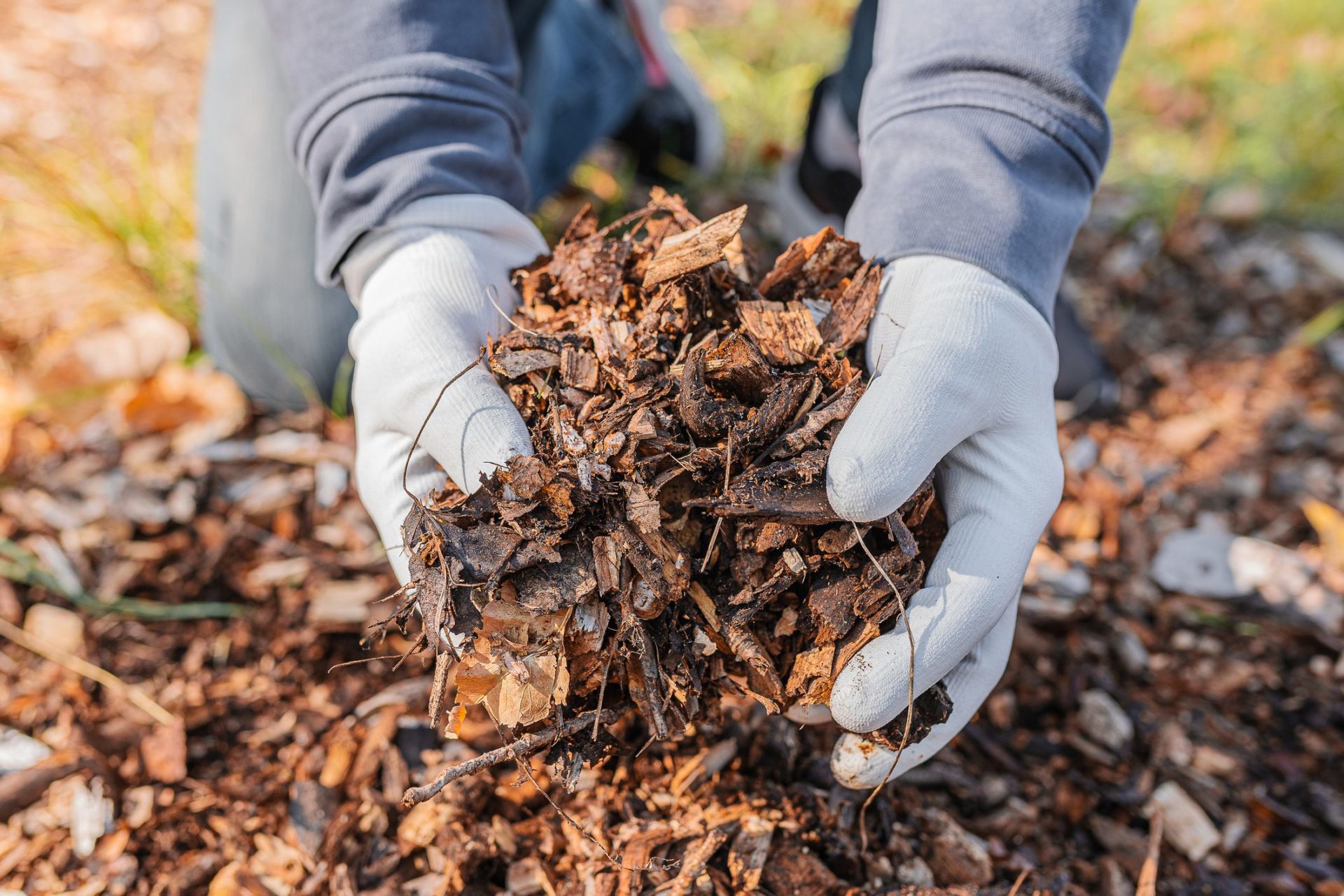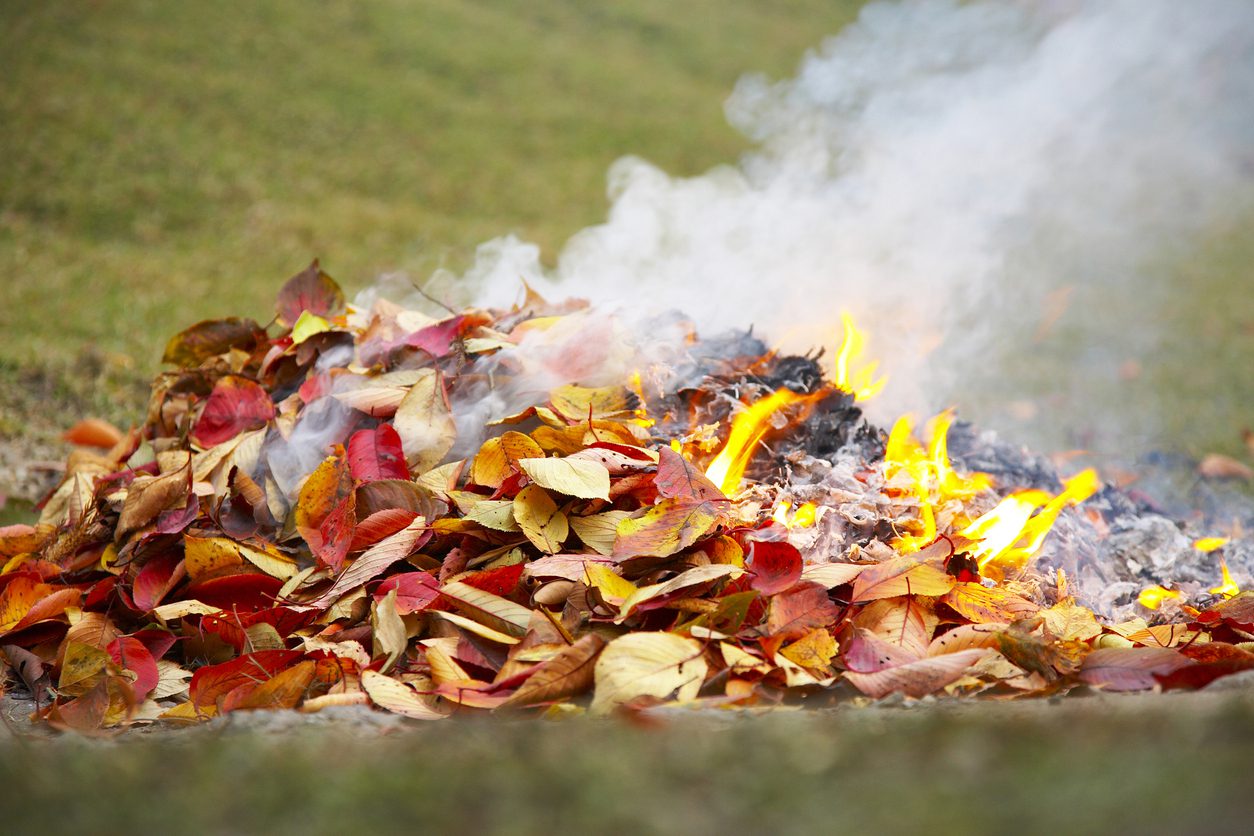Leaves: Fall Leaf Removal and How to Recycle Them
Leaves: Fall Leaf Removal and How to Recycle Them
4 ways to recycle those dead leaves that are piling up
Nature is perhaps never more beautiful than during the changing of the seasons. When autumn brings the changing colors and the wind it can also signal a need for important maintenance, cleaning fallen leaves. Falling leaves are abundant this time of year and, if left unchecked, leaves on the ground can damage the lush green foliage you’ve worked so hard to cultivate in the spring and summer.
Fortunately, there are several ways leaves can be recycled to protect the environment, keep your outdoor space green and healthy, and beautify your garden.

Leaves can be damaging to your yard_All Metro Companies
Damage from Fall Leaves Can Occur By:
- Smothering the grass. A thick layer of plant’s leaves can leave the earth covered, effectively smothering greenery, and preventing it from getting the sunlight as well as the air it needs to grow.
- Encouraging disease. Leaves can provide a perfect environment for diseases to spread, leading to brown patches and bare spots in the lawn.
- Attracting pests. Leaves can attract pests such as grubs, which will damage the grasses roots.
- Creating thatch. Thatch is a layer of dead organic matter that builds up on the surface of the dirt. Too much thatch can prevent water and nutrients from reaching the roots of the grass, leading to yellowing and wilting. For more information on how to combat thatch, read our article on lawn aeration here.
The good news is that removing leaves from your yard presents the perfect opportunity to engage in some environmentally friendly recycling and a great environment to plant new life the following year. There are several different ways that leaves can be recycled.

Recycle Leaves in a Compost Pile_All Metro Companies
Create a Compost Pile
Plant leaves, tree leaves and even grass clippings from your lawn mower can be used to make a compost pile. There are many benefits to composting, including:
- Improving soil quality. A great way to enrich the soil in your garden it adds essential organic matter. Organic matter can improve drainage and aeration while also retaining moisture around the roots of plants and preventing erosion.
- Suppressing plant diseases. By creating an environment that is unfavorable for disease-causing organisms compost has been attributed to things like antibiotic production by beneficial microorganisms and activation of disease-resistant genes in plants by composts.
- Providing essential food for plants. Whether it comes from a leaf or a dead plant, compost provides a slow release of nutrient-rich minerals, giving plants the essentials they need for growth, including nitrogen, phosphorus, and potassium.
- Reducing waste. Plain and simple, it’s a great way to reduce waste. You’re recycling organic materials that would otherwise be thrown away.
- Helping the environment. Overall, it reduces methane emissions from landfills and the need for chemical fertilizers.

Turn Your Leaves Into Woodchips and Mulch_All Metro Companies
Make Your Leaves Into Mulch
Mulch is a layer of material placed on the surface of the soil to not only provide an aesthetic benefit, but a healthy environment for plants, bushes, and flowers. Mulch can be made from a variety of materials, including wood chips, and bark. Fortunately, there’s no need to run to the hardware store for expensive bags of mulch as leaf mold can also offer a cost-friendly alternative.
Leaf mold: a type of compost made from leaves that have been allowed to decompose. Leaves are broken down by fungi, bacteria, and other microorganisms, which create a rich soil amendment. Often it is used as a mulch or as a way to improve drainage and aeration of soils.
Here are some of the ways leaf mold mulch can benefit your flower beds:
- Improve plant growth. Mulch improves growth by insulating plants during the cold winter months and retaining moisture during the warmer summer months.
- Suppress Weeds. Weeds can impede a plant’s ability to gather much-needed sun and moisture. Mulch suppresses weeds by blocking the sunlight that weeds need to grow and spread.
- Protect against erosion. Mulch prevents erosion by holding the soil in place and allowing water to seep through slowly. Leaf mold can also improve sandy or clay soil. It does this because of its organic material. Its bulky organic nature can boost the soil’s water-holding capacity, aeration, drainage, and nutrient-buffering abilities, among many other minor benefits.
Considering Soil Amendments?
Soil amendments are materials that are added to improve their physical properties, such as texture, drainage, or aeration. They can also be added to improve fertility or the ability to support plant growth. Amendments can be organic or inorganic and are typically applied to either gardens or grasses. Some common examples of soil amendments include compost, manure, sand, limestone, and peat moss.
While the use of amendments is a centuries-old practice, its popularity increased in the 1970s as part of the environmental movement. This is when there was a shift from purely aesthetic concerns to a more holistic view of the garden. This shift considered the impact on the environment, which led to an increased interest in organic gardening and the use of natural materials, such as compost, to improve the soil.
Today, the use of soil amendments is widely accepted as a best practice in gardening and landscaping.
Additional types of soil amendments include:
- Lime – raises pH, reducing acidity
- Sulfur – lowers pH, increasing acidity
- Gypsum – improves aeration of compacted soil, helping it drain more efficiently
- Perlite – improves aeration and drainage
- Vermiculite – improves moisture retention and aeration

Should You Get Rid of Leaves by Burning Them_All Metro Companies
Upcycle Leaves Into Paper Or Consider Leaf Burning
Believe it or not, leaves can be recycled into paper, which has the potential to save thousands of trees per year. If you’re interested in making paper, it is possible and different types of materials make different types of paper. Do your research to see all of the steps you would need to take to make paper here.
Of course, leaf burning is also a way to produce heat. Dead leaves can act as fuel. While we wouldn’t recommend putting them in your wood stove, a barrel can be used for leaf burning and a little warmth on a chilly fall evening. Remember, dry leaves can also be smoky so keeping them outdoors is important for safety and health reasons.
Some environmentalists also advise not to burn leaves. This is because burning leaves can unleash particulates, hydrocarbons, nitrogen oxide, carbon monoxide, and other problems into the air. It can also contribute to smog which damages sensitive ecosystems and negatively impacts crops and wildlife.
Give Your Leaves A Second Life
In general, it’s best to remove fallen leaves from your yard and garden so they don’t become a breeding ground for pests or diseases. Removing leaves can help improve the quality of your garden by adding essential organic matter, which can improve drainage and aeration along with other benefits. It’s also one of the easiest steps you can take to help reduce waste, improve the overall curb appeal of your home or business, and help the environment.
Don’t let the wind or an overwhelming amount of leaves make a mess of your space this year. For a comprehensive leaf and fall cleanup checklist, read our article here it’s a great way for you to keep your yard looking neat and tidy. Or if you’re looking to shred leaves or need help cleaning them up it may also be worthwhile to look into having a professional.
At All Metro Service Companies we love nature as much as you do. We help businesses and homeowners clean up their landscaping quickly and efficiently. Take a break from raking and bagging this year. Contact us today.
Looking for more information?
Call us today at 763-789-4788 to receive a free estimate on any of our property services.
Free Estimates
on all Services
Use the form below to request a free estimate on any of our services.






